- She was born in 1412 Domremy, France, the daughter of a tenant farmer and died at the age of 19.
- Joan of Arc’s real name was Jehanne d’Arc. She is also known as Jeanne d’Arc (French) and at her trial, she called herself – “Jehanne la Pucelle” The Maid of Orléans. She may also have gone by the name Jehanne Vouthon.
- From the age of 13, she reported hearing ‘voices from God’ – entrusting her with an important mission.
“I was thirteen when I had a Voice from God for my help and guidance. The first time that I heard this Voice, I was very much frightened; it was mid-day, in the summer, in my father’s garden. ”
– Joan of Arc from her trial transcript.
Mission to the Dauphin
- Her mother had a dream that Joan led a band of soldiers because of this, her parents carefully watched over her – fearing one day she would leave home. Joan was outwardly obedient to her parent and when she felt it was time to leave, she took the help of her uncle.
- When Joan of Arc first arrived in the court of the Dauphin in Chinon in 1428, she was initially greeted with incredulity and suspicion. She was refused a meeting with the Dauphin. However, she stayed and some locals became impressed with her honesty and fervour. Eventually, the Dauphin agreed to meet her and in a private meeting – Joan is said to have revealed something only a ‘messenger of God’ could have known. After this, the Dauphin accepted Joan of Arc and took her seriously.
- The Dauphin of France was Charles de Ponthieu, he was considered weak and an ineffective rule, but after meeting Joan of Arc the fortunes of the French changed. The Dauphin was crowned King Charles VII on 17 July 1429, a year after meeting Joan of Arc.
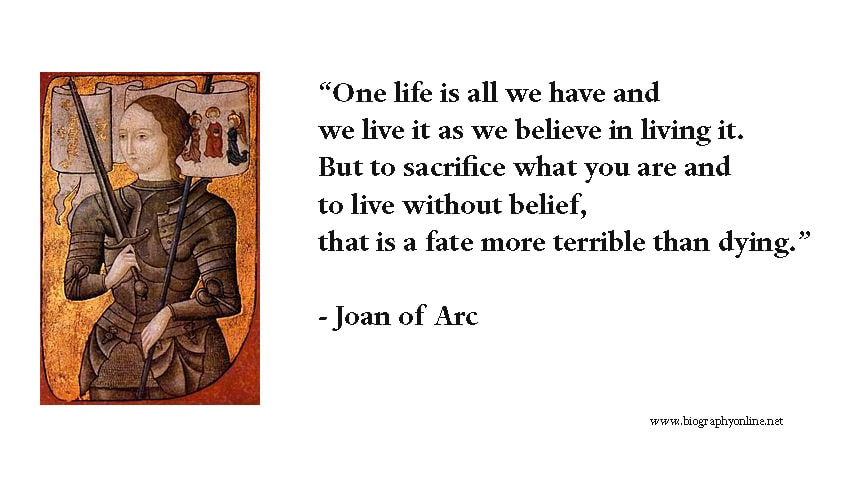
Fighting
- In March 1429, Joan of Arc was allowed to lead an army to Orleans, which at the time was under siege from the English. Joan of Arc cut her hair short, in the style of page boys and wore white clothes.
- At Orleans, she was injured by an arrow but was defiant in continuing to lead the French advance. She managed negotiations with the English – offering them defiant terms and ordering them to retreat, but when they refused she continued to fight. After a few days, the English and Burgundians were defeated and forced to retreat across the Loire River, making Joan a heroine overnight.
- Joan was injured on two occasions, an arrow to the shoulder at Orleans and a crossbow bolt to the throat during the unsuccessful siege of Paris. She did not fight directly but acted as a mascot and rallying point for her troops. She carried a standard bearing an image of Christ and she carried a sword that was found at the Church of Sainte-Catherine-de-Fierbois (as Joan had predicted)
- Joan of Arc not only led troops into battle, but she sought to transform the army into a more virtuous fighting force. Once when the English were in retreat at Orleans, she refused to chase them because it was a Sunday. She sought to stop gambling and prostitution and make the army feel they were fighting for a divine mission. Despite her age and sex, Joan had a fierce sense of right and wrong and could castigate prestigious knights for swearing or drunkenness. At her trial, it is claimed she tried to slap a Scottish soldier who had stolen some meat.
- Joan of Arc had tremendous courage and bravery to act as a leader of men.
“I do not fear their soldiers; my way lies open. If there are soldiers on the road, I have my Lord with me, who will make a road for me to reach the Dauphin. I was born for this.” – Joan of Arc “In her own Words”, p.19
- It was almost unheard of in that time for women (and peasant women) to give order and lead men. She lived in a virtual male world, but something in her caused the men to respect and revere her. She was courageous but also had a short temper, she became consumed with righteous indignation when the English soldiers taunted her with nicknames and told her to return to her cows on the farm.
“Glasdale, Glasdale, yield, yield to the King of Heaven. You have called me “whore”: I pity your soul and the souls of your men.”- Joan of Arc “In her own Words”, p.37
Religious beliefs of Joan of Arc
Like her mother, Joan of Arc was a very devoted and pious Catholic. She felt the necessity of following personal piety. Truth, chastity, fasting, devotion to the saints and Holy Communion. Despite feeling she was a pious Catholic and Christian, she felt she had a direct revelation from God, through the voices of saints such as St. Michael, St. Catherine of Alexandria, and St. Margaret of Antioch. This direct communion with God placed her in confrontation with the Church who believed that the will of God needed to be interpreted through the Church and not directly.
“Whenever I am unhappy, because men will not believe me in the things that I say at God’s bidding, I go apart and pray to God, complaining to him that those to whom I speak do not easily believe me. And when I have made my prayer to God, I hear a voice that says to me: “Child of God, go, go, go! I shall be with you to help you. Go!” And when I hear that voice I feel a great joy. Indeed, I would that I might ever be in that state.”
– Joan of Arc “In her own Words”, p.43
Arrest and trial
- During her time in the army and at the trial, Joan wore men’s clothing, which was very unusual for the time. Joan wore men’s clothing to fit in with the soldiers who made up the army.
- In 1430 Joan was captured by the Burgundian forces (French forces not loyal to Charles) at Compiegne and sold to the English. The Burgundians hoped to discredit King Charles by proving Joan to be a witch. Despite owing his coronation to Joan, Charles did not seek her release as he didn’t want to be tainted with someone accused of witchcraft.
- She was tried for witchcraft and 69 other charges in a court and conducted her own defense. The whole trial was recorded by court scribes and Joan of Arc held her own, despite facing immense pressure from a hostile court. The prosecutor Pierre Cauchon tried to trip her up, asking her – “Do you know if you are in the grace of God?” This was a trick question as if Joan said yes, it would imply she felt herself divine. She replied“If I am not, may God place me there; if I am, may God so keep me. I should be the saddest in all the world if I knew that I were not in the grace of God. But if I were in a state of sin, do you think the Voice would come to me? I would that every one could hear the Voice as I hear it. I think I was about thirteen when it came to me for the first time.” – Joan of Arc
- Pierre Cauchon was the leading Churchman responsible for trying Joan. He felt it was his duty to save her ‘immortal soul’.
- During her captivity, she was threatened with torture to reveal the ‘truth.’ But, she answered that even if they tortured her, she would not reply any differently. By a vote of 10 to 3, the interrogators decided torture would be useless.
- The trial was transcribed giving a large source of primary material. At the trial, Joan defended herself with great intellect, despite being denied legal support.
- After a guilty verdict was given, she temporarily retracted her statements to escape death by burning and instead life imprisonment. But, later she changed her mind and restated her belief in statements at trial. She was then sentenced to be burnt at the stake on the charge of ‘relapsed heretic.’
“Rouen, Rouen, shalt though be my dwelling?
I beg each priest here to say a mass for me.
At the stake
“I pray you, go to the nearest church, and bring me the cross, and hold it up level with my eyes until I am dead. I would have cross on which God hung be ever before my eyes while life lasts in me.”
“Jesus, Jesus!”
- There are many contradictory eye-witness reports about her execution, but a consensus was that Joan endured her fate bravely and she remained a devoted Christian to the last.
Legacy and sainthood
- Twenty years after her trial, her family wrote a letter to Pope Calixtus III arguing the verdict should be overturned. In 1456, her trial and sentence were annulled.
- Joan of Arc was beatified in 1909 and canonized in 1920. She was made a patron saint of France.
Citation: Pettinger, Tejvan. “Facts about Joan of Arc”, Oxford, UK. www.biographyonline.net, 22 April 2020.
Joan of Arc: By Herself and Her Witnesses
Joan of Arc: By Herself and Her Witnesses at Amazon
Joan of Arc: In Her Own Words
Joan of Arc: In Her Own Words at Amazon
Related pages

The life story of Joan of Arc from anonymous peasant to leading French armies.
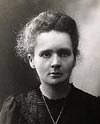

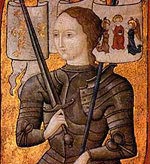
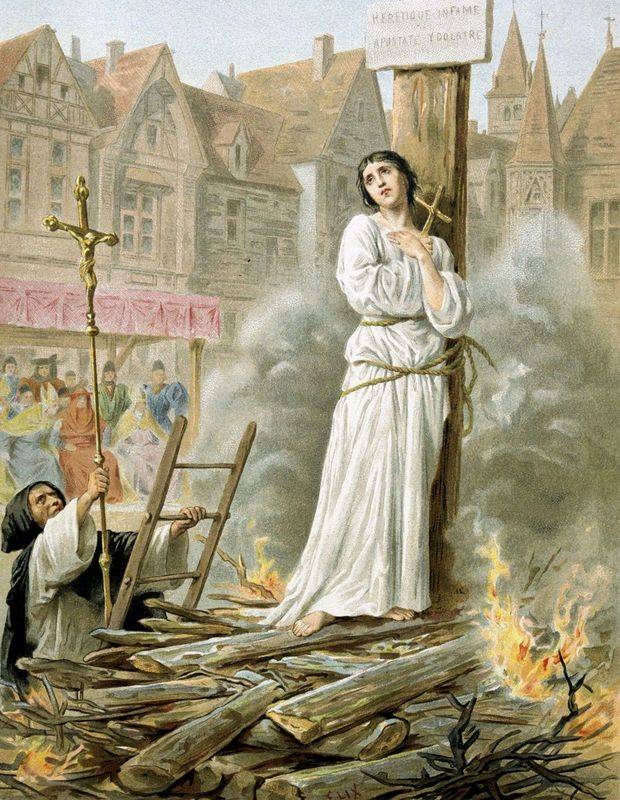
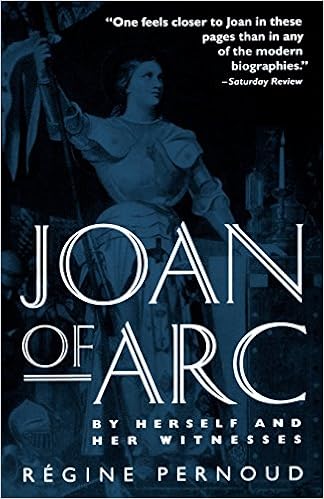

Comments are closed.
*/